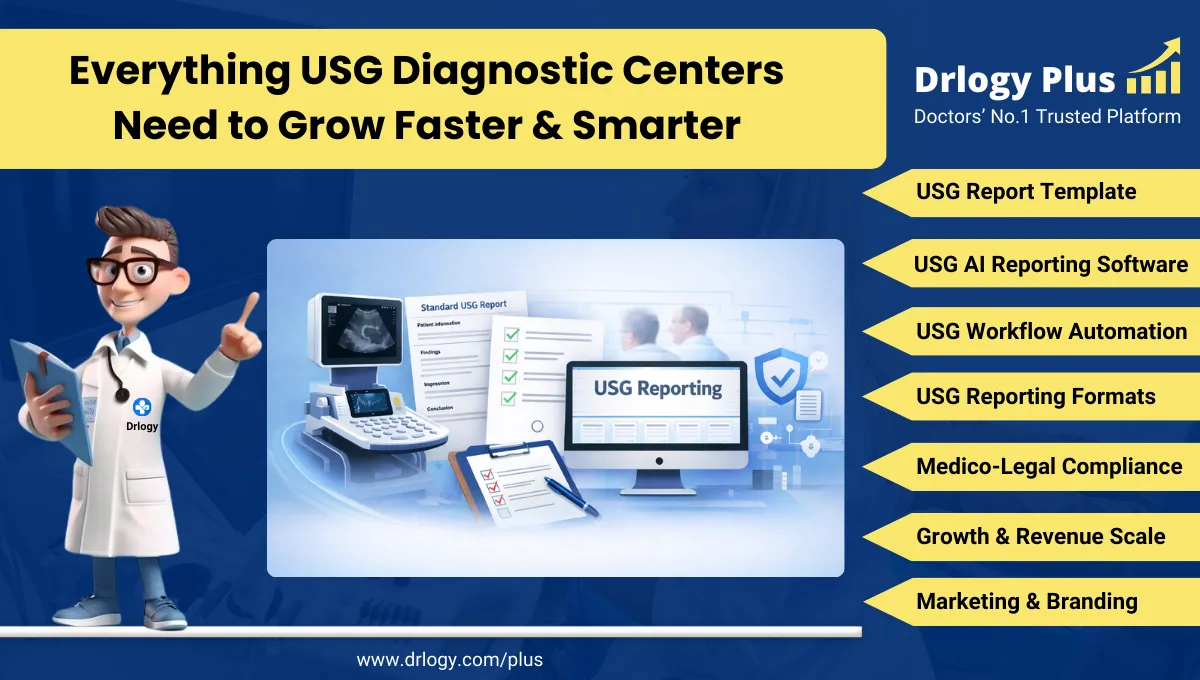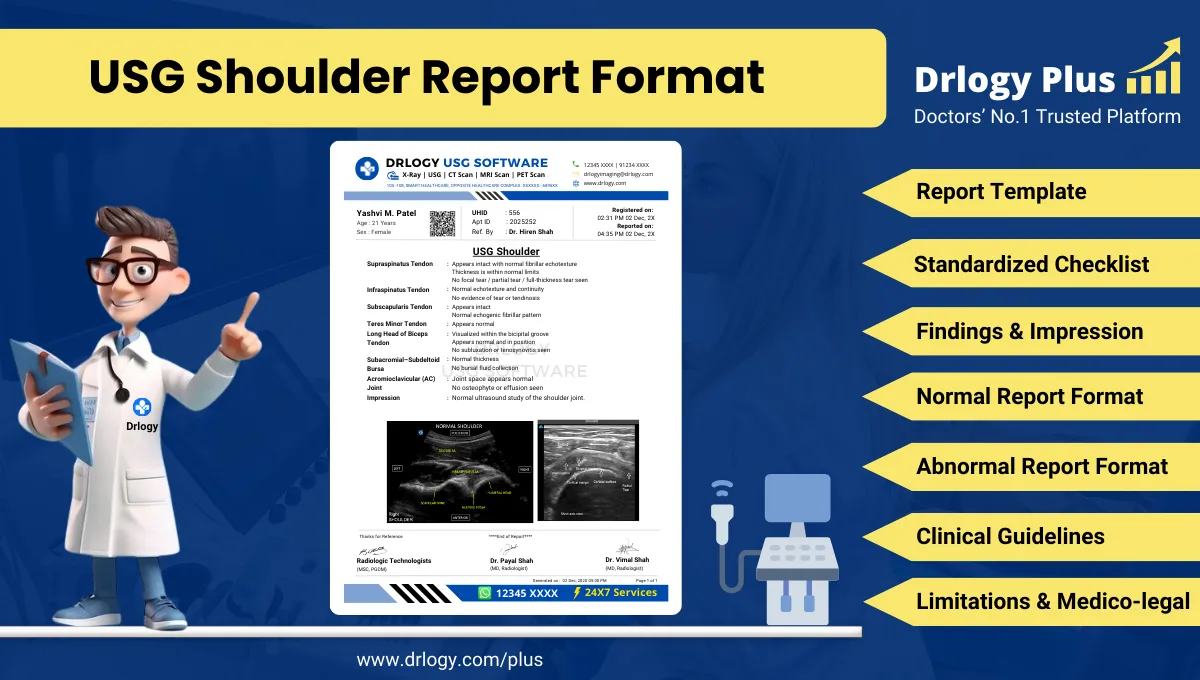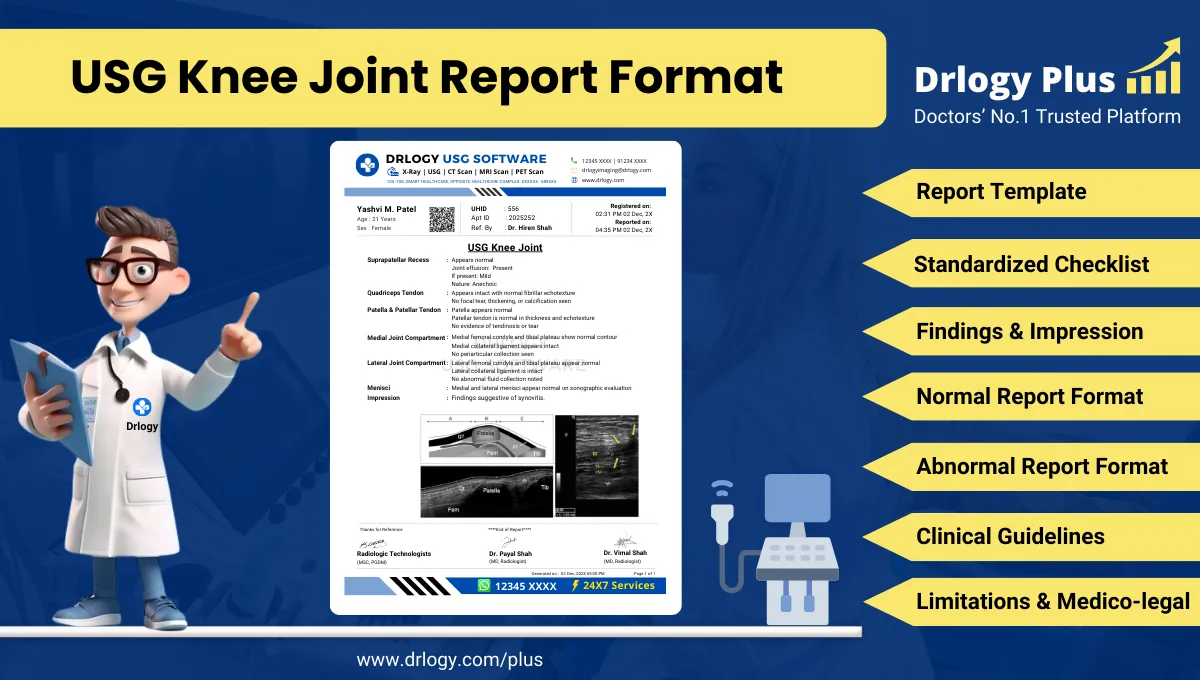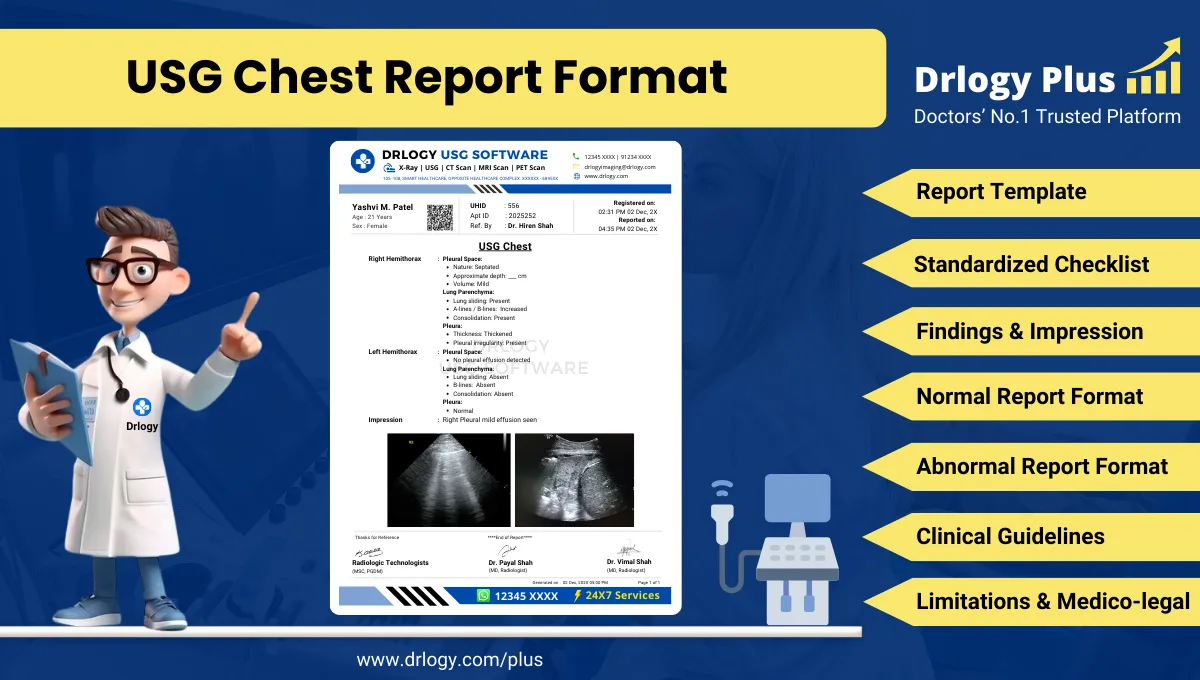

Drlogy
Healthcare organization
Biochemistry Analyzer Types: Semi Automatic & Fully Automatic
Biochemistry analyzers play a vital in medical laboratories, facilitating rapid and accurate testing across various parameters including liver and kidney function, blood glucose, lipid analysis, and other biochemical projects.
It can quickly and accurately test a variety of items, including liver function, kidney function, blood glucose, lipid analysis and other biochemical projects that need to be carried out.
Biochemistry Analyzer Types
Here are basic Biochemistry analyzer types widely used in lab management.
| Automation Level | Technology | Application |
|---|---|---|
| Manual | Manual operation | Sample addition, manual testing, result recording |
| Semi-automatic | Partial manual operation | Sample addition, colorimetric inhalation, result recording |
| Fully Automatic | Full automation | Complete testing process from sample addition to result reporting without manual intervention |
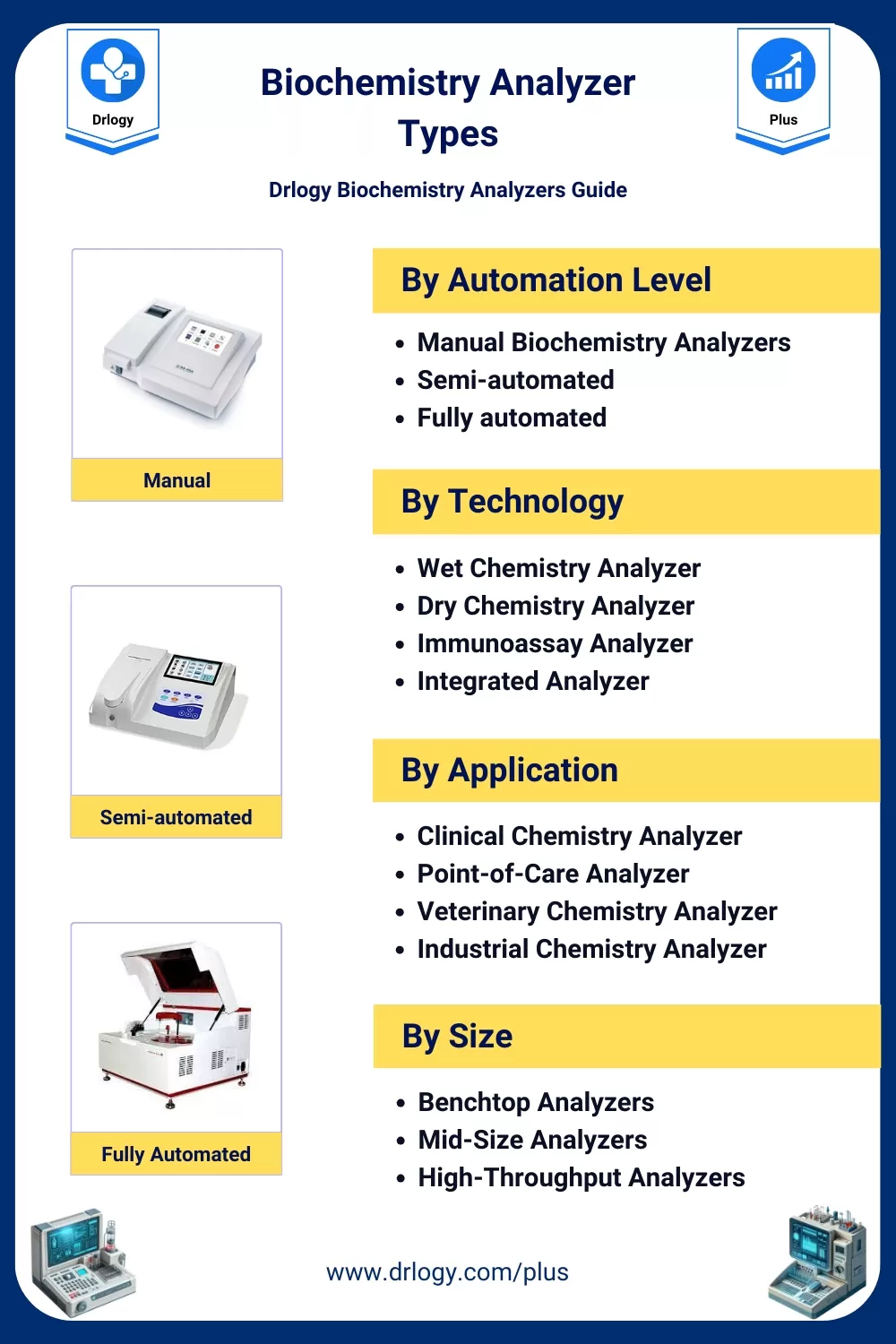
Biochemistry analyzer come in various types, each offering distinct advantages based on their level of automation, underlying technology, and intended application.
Biochemistry Analyzer Types by Automation Level:
Here are the 3 types of biochemistry analyzer by Automation Level:
1. Manual Biochemistry Analyzer:
- Requires manual operation by laboratory technicians.
- Involves manual addition of samples and reagents.
- Conducts testing through traditional, hands-on methods.
- Relies on manual recording and interpretation of results.
- Suited for small-scale laboratories with limited automation capabilities.
2. Semi-automatic Biochemistry Analyzer:
- Requires partial manual operation alongside automated processes.
- Operators perform tasks such as sample addition and result recording manually.
- Automated functions may include colorimetric inhalation and specific steps in the analysis process.
- Suitable for laboratories with moderate testing volumes and where manual intervention is acceptable.
- Offers a balance between automation and operator involvement,eal for certain specialized tests.
3. Fully Automatic Biochemistry Analyzer:
- Completes the entire testing process automatically without manual intervention.
- From sample addition to result reporting, all steps are executed by the instrument.
- Offers high throughput and efficiency, suitable for laboratories with high testing volumes.
- Minimizes the risk of human error and enhances workflow automation.
- Ideal for routine screening and comprehensive biochemical analysis in large-scale laboratories.
Biochemistry Analyzer Types by Technology:
Here are the 4 types of biochemistry analyzer by technology:
| Biochemistry Analyzer Type | Description |
|---|---|
| Wet Chemistry Analyzer | Utilizes liquid reagents for chemical reactions. |
| Dry Chemistry Analyzer | Employs solid-state reagents for chemical reactions. |
| Immunoassay Analyzer | Detects and measures specific proteins or antibodies in samples. |
| Integrated Analyzer | Combines multiple testing capabilities into a single platform. |
1. Wet Chemistry Analyzer
- Utilizes liquid reagents for chemical reactions.
- Offers a wide range of tests for various analytes.
- Requires precise handling of reagents and samples.
- Provides accurate results for clinical chemistry assays.
- Commonly used in centralized laboratory settings.
2. Dry Chemistry Analyzer
- Employs solid-state reagents for chemical reactions.
- Offers rapid turnaround time for test results.
- Requires minimal sample preparation and handling.
- Ideal for point-of-care testing and decentralized settings.
- Provides convenience and flexibility in testing workflow.
3. Immunoassay Analyzer
- Detects and measures specific proteins or antibodies in samples.
- Utilizes immunochemical reactions for analyte detection.
- Offers high sensitivity and specificity for target molecules.
- Used in various diagnostic applications, including infectious diseases and hormone assays.
- Provides quantitative and qualitative results for immunoassays.
4. Integrated Analyzer
- Combines multiple testing capabilities into a single platform.
- Offers versatility and efficiency in laboratory workflow.
- Integrates chemistry, immunoassay, and other testing methodologies.
- Streamlines sample processing and result reporting.
- Provides comprehensive diagnostic capabilities for diverse clinical needs.
Biochemistry Analyzer Types by Application:
Here are the 4 types of biochemistry analyzer as per application.
| Biochemistry Analyzer Type | Application |
|---|---|
| Clinical Chemistry Analyzer | Analyzes blood and bodily fluids for disease diagnosis and management. |
| Point-of-Care Analyzer | Provides rapid testing at or near the patient's location for immediate results. |
| Veterinary Chemistry Analyzer | Analyzes biological samples from animals for veterinary diagnostics. |
| Industrial Chemistry Analyzer | Performs chemical analysis in industrial settings for quality control and process monitoring. |
1. Clinical Chemistry Analyzer
- Analyzes blood and bodily fluids for disease diagnosis and management.
- Measures various biochemical markers such as glucose, cholesterol, and enzymes.
- Used in hospitals, clinics, and laboratories for routine testing.
- Provides quantitative results for assessing organ function and detecting abnormalities.
- Plays a crucial in patient care and treatment monitoring.
2. Point-of-Care Biochemistry Analyzer
- Provides rapid testing at or near the patient's location for immediate results.
- Offers convenience and timely diagnosis in emergency departments, clinics, and ambulatory settings.
- Requires minimal sample volume and processing time.
- Enables real-time monitoring and management of patient conditions.
- Used for rapid screening, diagnosis, and treatment monitoring.
3. Veterinary Chemistry Analyzer
- Analyzes biological samples from animals for veterinary diagnostics.
- Measures biochemical markers relevant to animal health and disease.
- Used in veterinary clinics, animal hospitals, and research facilities.
- Provides comprehensive diagnostic information for managing animal health.
- Supports the diagnosis and treatment of various veterinary conditions.
4. Industrial Chemistry Analyzer
- Performs chemical analysis in industrial settings for quality control and process monitoring.
- Measures parameters such as pH, conductivity, and chemical composition.
- Used in manufacturing, food processing, environmental monitoring, and pharmaceutical industries.
- Ensures product quality, safety, and regulatory compliance.
- Facilitates efficient production processes and waste management.
Drlogy Biochemistry Analyzer Guide
Here are Full Drlogy Biochemistry Analyzer Machine Guide For Lab Owners.
| 1. Uses | 5. Brands |
| 2. Types | 6. Suppliers |
| 3. Price | 7. Maintenance |
| 4. Fully Automatic Biochemistry Analyzer | 8. LIMS |
Summary
Overall, Biochemistry analyzers encompass a diverse range of technologies catering to various diagnostic needs, from clinical laboratories to industrial settings. These analyzers play a pivotal in healthcare, veterinary medicine, and industrial processes by providing accurate and timely biochemical analysis.
Check Full Drlogy Biochemistry Analyzer Guide on how to choose best Biochemistry Analyzer according to your lab type with price, budget, function and LIMS solution for better lab management and growth.
FAQ
What are the types of biochemistry analyzers?
- Fully automatic analyzers: These instruments automate the entire testing process, from sample loading to result reporting.
- Semi-automatic analyzers: These analyzers automate certain steps of the testing process but require manual intervention for sample preparation or handling.
- Point-of-care analyzers: These portable devices allow for immediate on-site testing, often used in emergency departments, clinics, and ambulances.
- Benchtop analyzers: These compact instruments are designed for use in smaller laboratories or research settings, offering a combination of automation and flexibility.
How long does it take for a biochemistry analyzer to process a sample?
- The processing time for a sample on a biochemistry analyzer depends on various factors, including the type of test being performed, the number of parameters being analyzed, and the analyzer's throughput capacity.
- Routine tests such as glucose or cholesterol may take only a few minutes to process, while more complex panels or profiles may require longer processing times.
- High-throughput analyzers can process multiple samples simultaneously, reducing overall turnaround time.
- Some analyzers offer rapid or urgent testing modes for critical samples, providing results within a shorter timeframe.
Are biochemistry analyzers user-friendly?
- Modern biochemistry analyzers are designed with user-friendly interfaces and intuitive software to facilitate ease of operation.
- They often feature touchscreen displays, graphical user interfaces, and step-by-step instructions for sample preparation and analysis.
- User training and technical support are typically provided by manufacturers to ensure operators can effectively utilize the analyzer.
- Additionally, maintenance procedures are streamlined, and troubleshooting guides are available to assist users in resolving any issues that may arise during operation.

